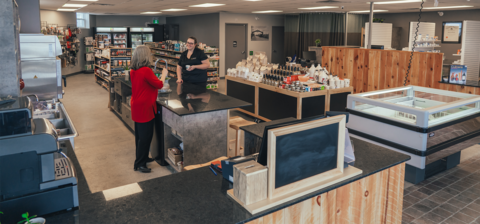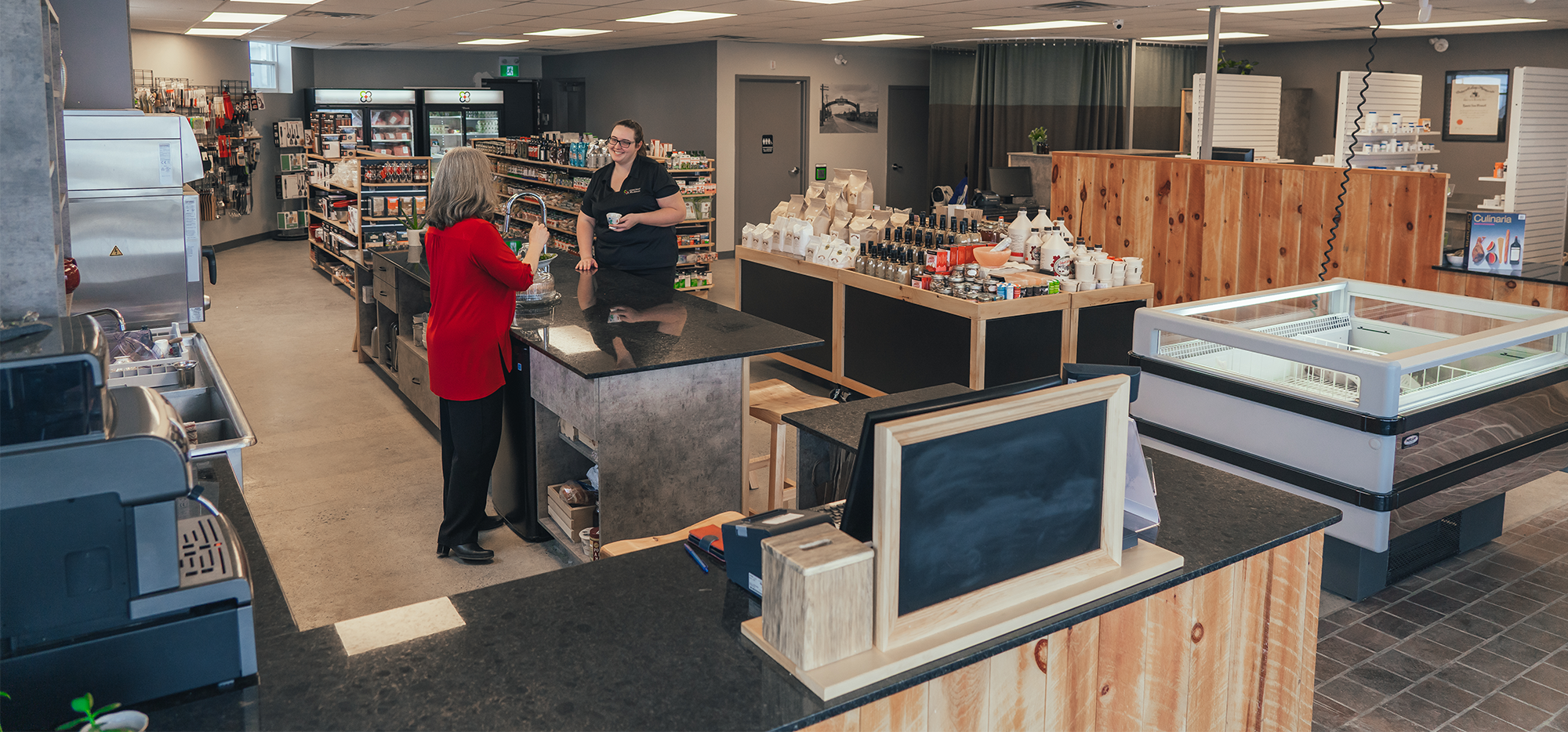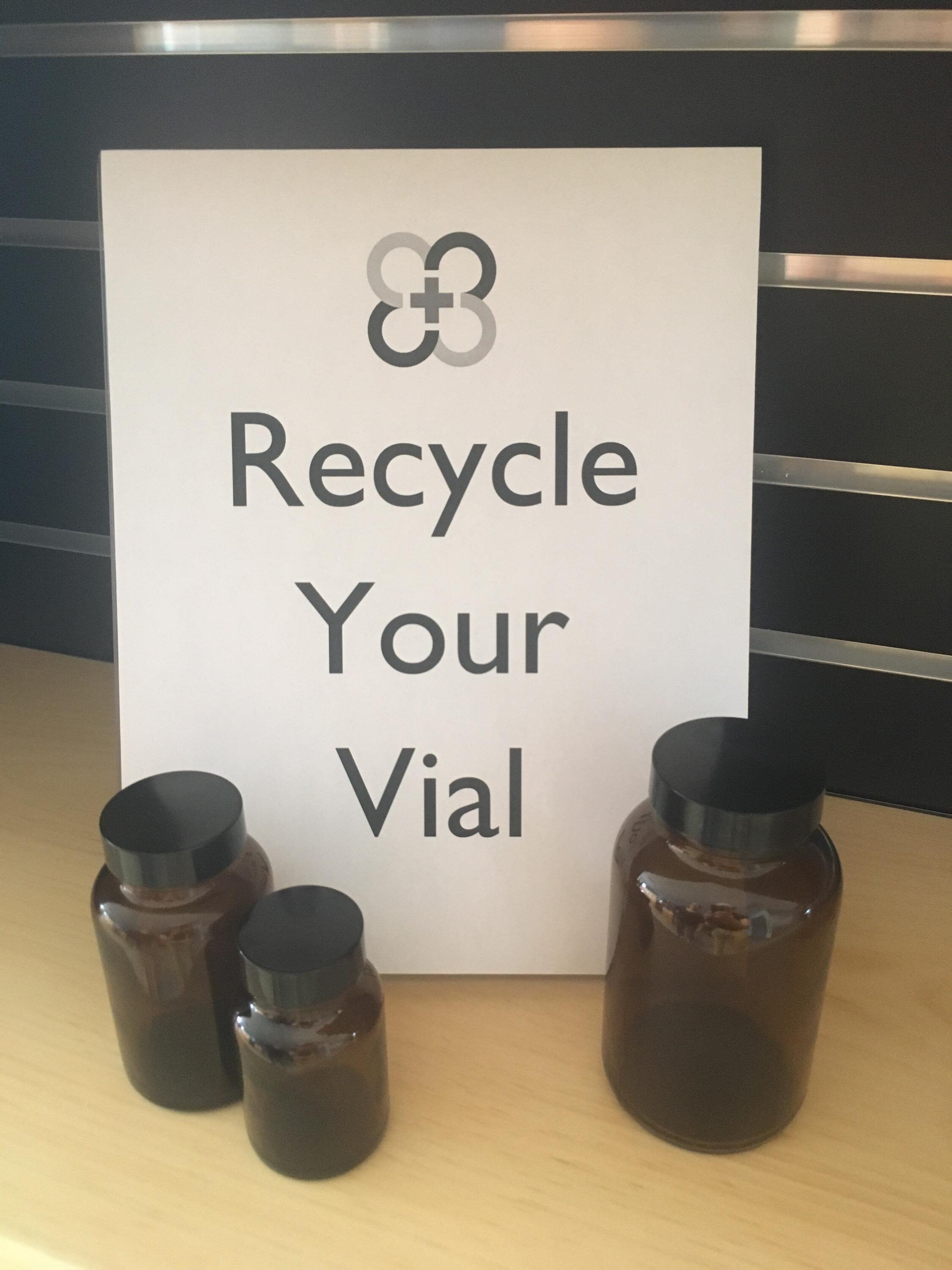
A healthier planet, one bottle at a time

Learn how to implement a reusable prescription bottle program in your pharmacy
By Emily Stanger, Rx2023, who volunteered at the Seasons Pharmacy and Culinaria in Sudbury and interviewed owner Rachelle Rocha for this story.
Traditionally, the pharmacy industry creates lots of waste. According to EcoloPharm “more than 6,000 tons of plastic and carton waste in recycling bins can be fully attributed to the disposal of prescription packaging.”
Seasons Pharmacy and Culinaria in Sudbury, Ontario is working to change this statistic, one prescription at a time.
Pharmacy model
Opened in 2019 by pharmacists Rachelle Rocha and Laurie Pennell, Seasons Pharmacy and Culinaria is divided into three sections: the dispensary, a commercial kitchen, and a front shop area that includes over the counter products and kitchen staples.
The pharmacists view food as medicine and wanted to incorporate this into their practice. Their goal is to build a community, and their reusable prescription bottle program helps them do this.
Getting the program off the ground
“I have been working for a long time on solutions that I can control, and from an environmental perspective, pharmacy uses lots of plastic,” says Rocha.
Memories of reusing lorazepam glass bottles for her spice collection, combined with a friend opening a zero-waste store, inspired her to begin a reusable bottle program in her pharmacy.
The program was simple to implement. Rocha advertised it on the pharmacy Facebook page and discussed it with patients. They also received advertising from The Nickel Refillery, a zero-waste store in Sudbury, who encouraged their eco-conscious customers to consider transferring to Seasons to implement more sustainable practices.
How it works

- A patient purchases an amber glass vial (three sizes available)
- They receive their prescription in the glass vial
- The patient brings in their vials when they need refills and are given new ones; staff wash the old bottle and prepare it for future use
Challenges
Incorporating the process into the pharmacy workflow took time. Staff try to note on the patient profile whether the patient participates in the reusable bottle program, but this may get missed in the filling process, resulting in a plastic bottle being used instead.
“Our patients are pretty good at reminding us if they are an amber vial patient,” Rocha explains. The washing process is also a bit labour intensive, as the glue from the label is challenging to remove.
The staff also quickly learned that they cannot put the vial lids in the dishwasher as it will damage the cardboard filler. Instead, they are cleaned with alcohol. After ruining a few lids, Rocha says the pharmacy staff realized that many medication stock bottle lids will fit on the amber vials, another way the pharmacy is able to reduce their environmental impact.
Wins
The pharmacy staff turned a challenge into a marketing opportunity. Rocha ordered stickers with the pharmacy logo that fit inside the vial lids, replacing the cardboard fillers.
“It reminds the patient of our pharmacy every time they open their vial, and it shows them we care,” Rocha says.
Patients love having the choice to participate in the reusable bottle program, and the pharmacy has had patients transfer in for this very reason.
There are practical advantages as well. The amber vials protect from light and moisture, and patients with arthritis prefer the glass vials because the twist cap is easier to open and the vial itself is wider and heavier, making it easier for them to grasp.
Start your own program
“We need more pharmacies to participate to make an overall environmental impact,” Rocha says.
To participate, all you need are glass vials and a method to wash them. Rocha suggests that pharmacists consult with their public health unit about proper cleaning methods or hire an external company to sanitize vials.
Rachelle encourages pharmacists to think less about what you did at previous jobs and focus on what you can do instead, use creativity, and ask for suggestions to make an impact.
“We all have an obligation to invest in things that help our culture” she says. “I’m proud of how our team is investing in our planet’s future.”
About the author
